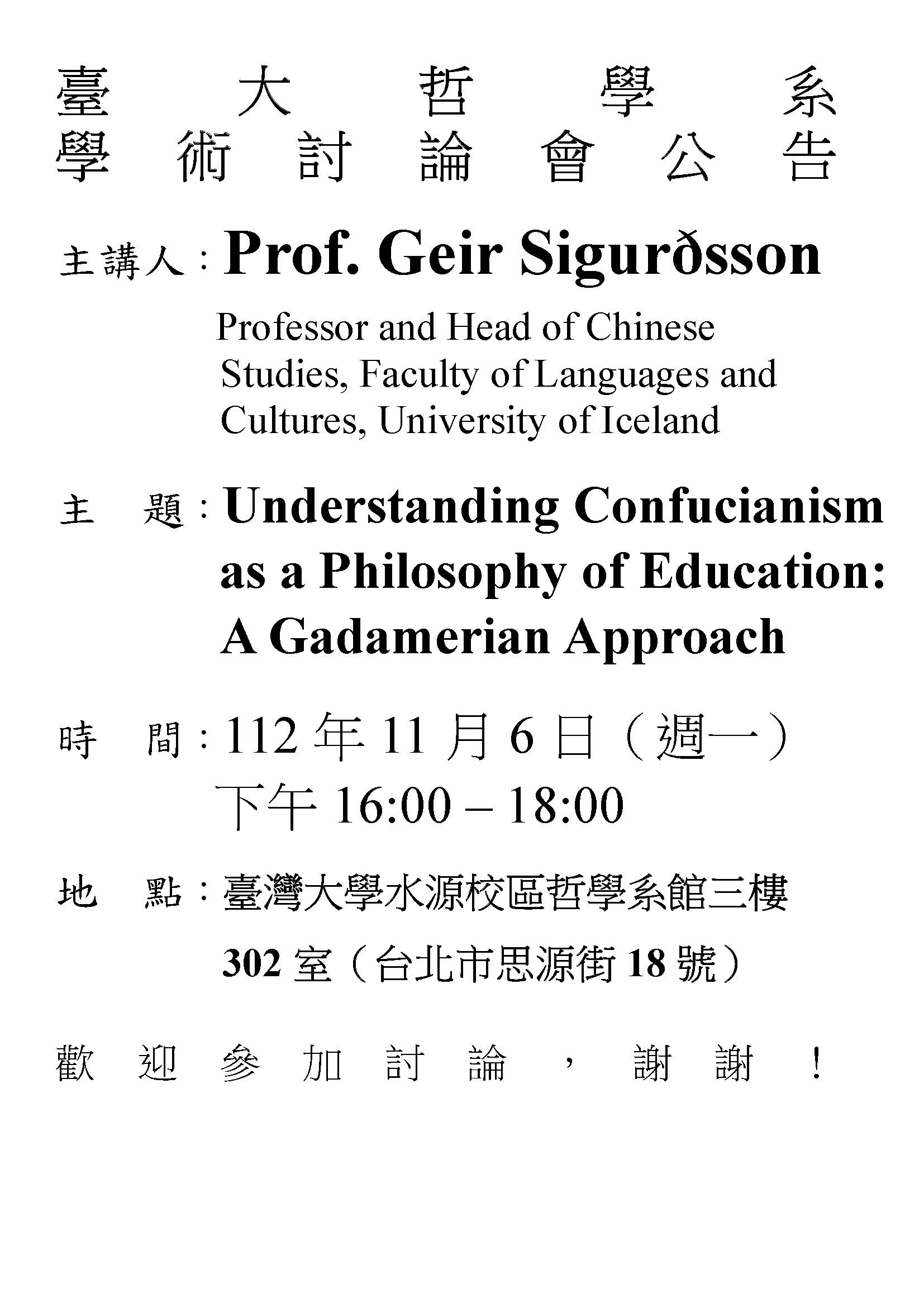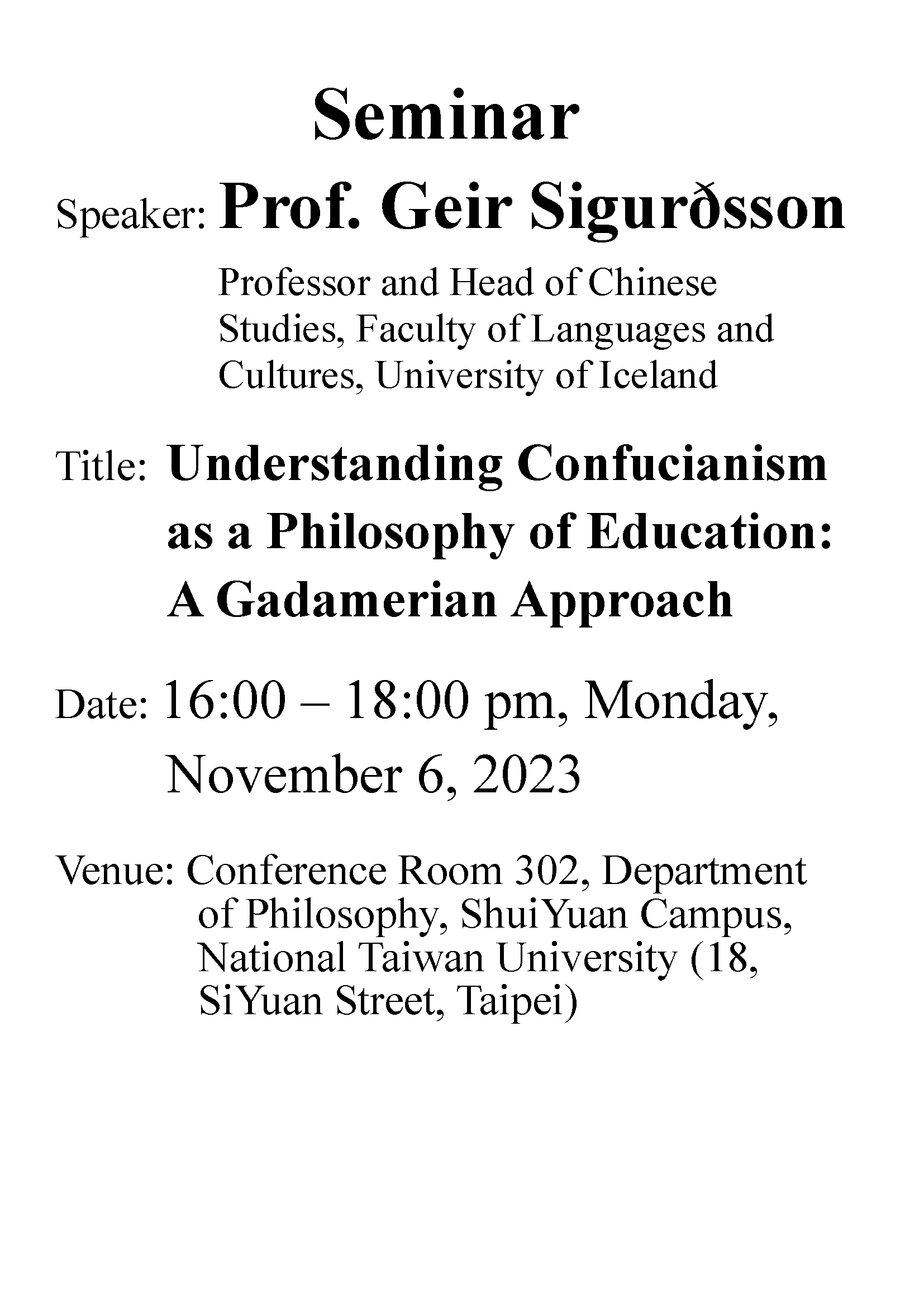[演講公告] 11/6 (一) 16:00-18:00 Understanding Confucianism as a Philosophy of Education: A Gadamerian Approach



臺大哲學系
學術討論會公告
主講人:Prof. Geir Sigurðsson
Professor and Head of Chinese Studies, Faculty of Languages and Cultures, University of Iceland
主 題:Understanding Confucianism as a Philosophy of Education: A Gadamerian Approach
時 間:112年11月6日(週一)
下午16:00 – 18:00
地 點:臺灣大學水源校區哲學系館三樓 302室(台北市思源街18號)
歡迎參加討論,謝謝!
Seminar
Speaker: Prof. Geir Sigurðsson
Professor and Head of Chinese Studies, Faculty of Languages and Cultures, University of Iceland
Title: Understanding Confucianism as a Philosophy of Education: A Gadamerian Approach
Date: 16:00 – 18:00 pm, Monday, November 6, 2023
Venue: Conference Room 302, Department of Philosophy, ShuiYuan Campus, National Taiwan University (18, SiYuan Street, Taipei)
Abstract:
The question how Western scholars should approach non-Western philosophical traditions is one that is continually being posed, both directly and indirectly. Among these traditions is Confucianism, which has been approached from a number of views since its introduction in Europe in the modern period. During this rather long course of time, it has been understood for instance as a non-religious form of Christianity, as a disorganized collection of moral maxims, as a kind of ethics comparable with Kantian ethics, as a philosophy with pragmatic dispositions and more recently as a form of Neo-Aristotelian virtue ethics. Most of these approaches contain at least some hermeneutical or heuristic merits, while some of them clearly constrain the potential contained in the Confucian philosophy by imposing upon it an alien framework. In this paper I will suggest that it may be appropriate or at least helpful to interpret at least early Confucianism as a philosophy of education, implying that ‘education’ (or perhaps rather ‘edification’) is the leitmotif or ‘continuous strand’ (一貫) in its entire philosophical orientation which sustains most other aspects of its philosophy. I shall further take a few examples of highly sophisticated views of education that appear in the early literature of Confucianism, including genuine critical elements, transformative aspirations and even surprisingly ‘modern’ techniques of teaching and learning.
